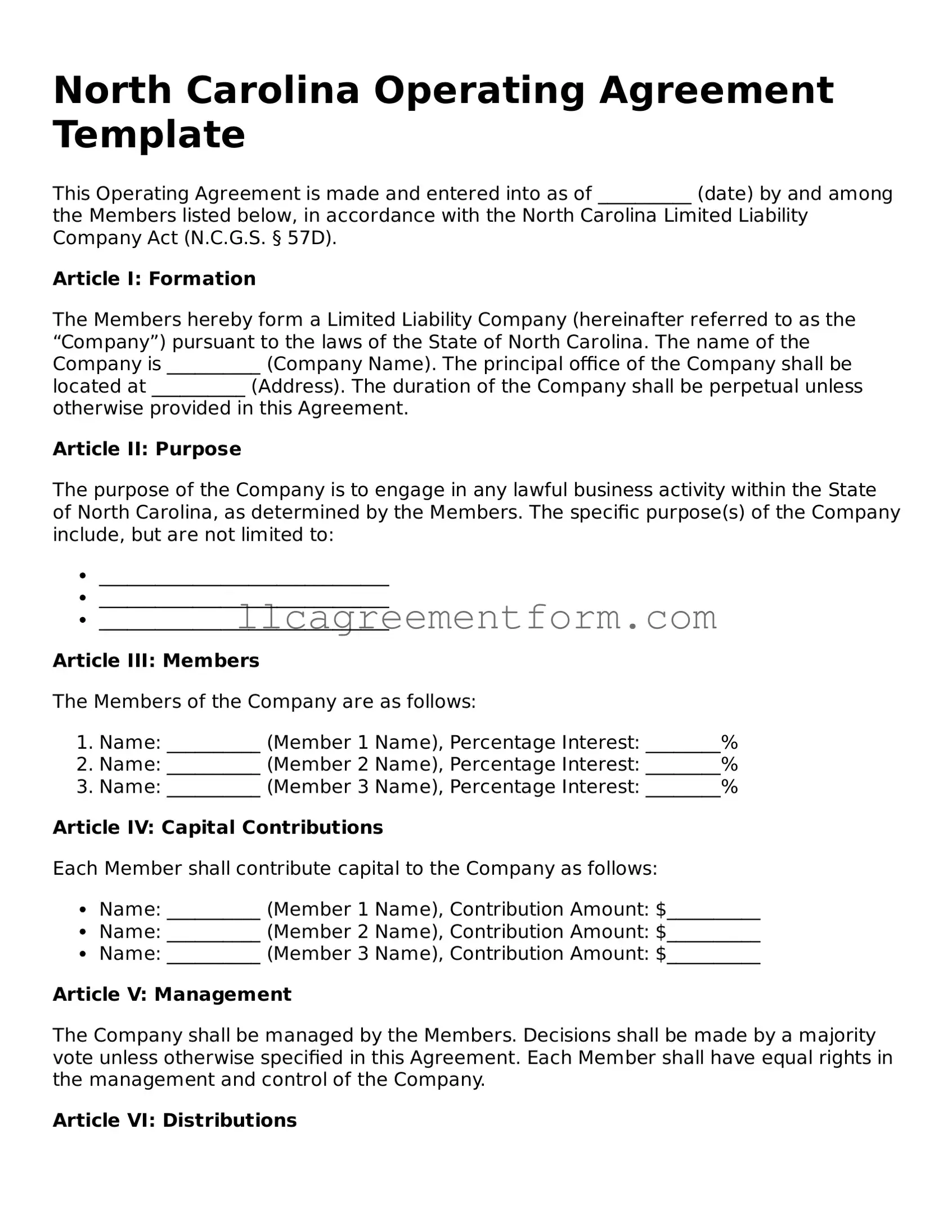Free Operating Agreement Document for North Carolina
The North Carolina Operating Agreement form is a crucial document that outlines the management structure and operational procedures of a limited liability company (LLC) in North Carolina. This agreement helps clarify the rights and responsibilities of members, ensuring smooth business operations. To get started, fill out the form by clicking the button below.
Get Operating Agreement Now

Free Operating Agreement Document for North Carolina
Get Operating Agreement Now
Don’t stop halfway through your form
Finish Operating Agreement online with fast editing and easy download.
Get Operating Agreement Now
or
▼ PDF
